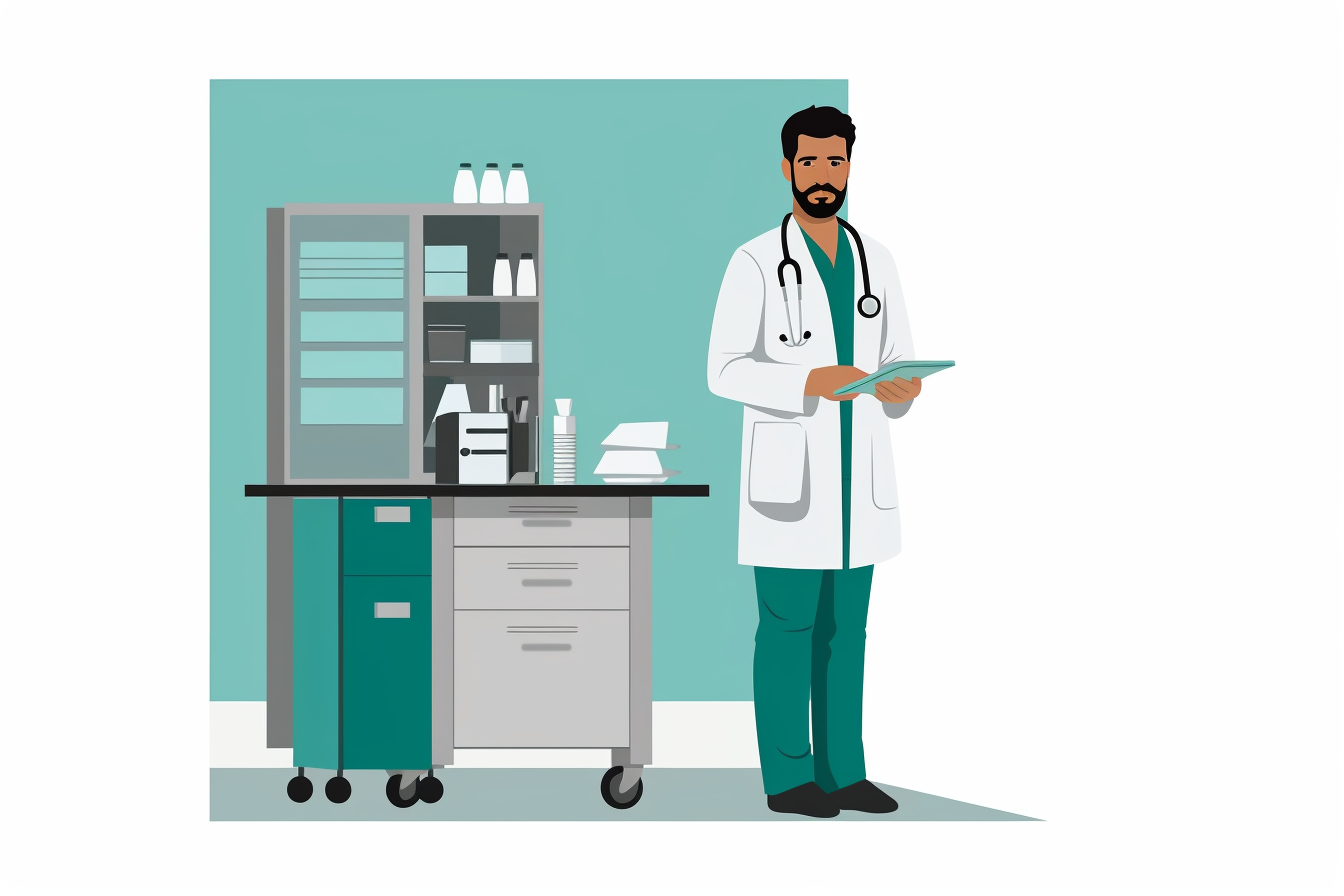
Body + Mind is reader-supported. We may earn an affiliate commission when you buy through some of the links on our site.
As a man, your risk of developing prostate-related issues increases as you age. That’s why medical professionals often recommend having your prostate checked if you are over 40 years old. However, long before then, you should already be taking active steps to reduce your risk factors so you can enter your golden years with one less worry. To that end, here are seven prostate health tips you should regularly follow before your 40th birthday.
Obesity is a known risk factor for many health issues, including prostate cancer. According to a study by the European Association for the Study of Obesity, every additional 3.9 inches on a man’s waist increases his risk of dying from prostate cancer by 7%.
That’s why it’s important to maintain a healthy weight based on your ideal body mass index (BMI), where you measure your height against your weight. A normal weight is a BMI between 18.5 and 24.9, whereas anything over 30 is considered obese.
Vegetables are packed with vitamins and minerals necessary for a healthy body. Many leafy greens, including spinach, arugula and kale, are low in calories yet contain high fiber and phytonutrients that can help keep your prostate healthy. Certain cruciferous vegetables like broccoli and Brussels sprouts are rich in antioxidants that can help reduce the risk of cancer and heart disease.
More importantly, eating vegetables regularly supports healthy aging by helping delay the shortening of telomeres. These are the protective caps on DNA that shorten as you grow older. The cell dies once the body’s telomeres are gone, so eating foods that delay their reduction is crucial for aging gracefully.
It’s like every time you’re looking at health tips, there’s always a recommendation about reducing red meat consumption. There’s a good reason for that — eating lots of red meat and processed meats increases your risk of developing cancer. A 2022 study published in the National Library of Medicine suggests increasing processed meats intake by 50 grams per day can result in a 4% higher risk of developing total prostate cancer.
Additionally, research by the American Cancer Society (ACS) found men diagnosed with prostate cancer have up to 20% lower risk of prematurely dying by replacing red meat with poultry.
Staying active and regularly exercising provides a ton of health benefits, including boosting brain health, strengthening muscles and reducing the risk of diseases. Simply walking or doing an equivalent exercise for three hours a week can result in an 86% lower risk of developing aggressive prostate cancer.
The best part is you don’t even have to hit the gym to get your workout done. Simple activities at home, like squats and lunges, can help exercise your lower body muscles and ensure proper circulation. If you’re iffy about sweating so much, try swimming. The water supports up to 75% of your body and provides a complete workout without you breaking a sweat.
The older you get, the more you need to pay attention to your stress levels. While there is no direct correlation between prostate health and stress, being under chronic prolonged mental pressure can compromise your immune system, disrupting your body’s natural ability to heal. Plus, it increases your risk of chronic diseases.
Learn to set aside time to destress. Whether that’s through meditation, quality sleep or just being around your loved ones, what’s important is that you take care of your mental health and ease daily pressures.
Several studies show that frequent ejaculation may be beneficial to prostate health. One study found that men who ejaculated at least 21 times in a month had a 20% lower chance of prostate issues than men who only ejaculated at most seven times in the same period.
The reasoning behind this is quite straightforward — harmful carcinogens naturally build up in the prostate and regular ejaculation flushes them out. That’s the theory at least, but hey, if you ever needed a medical reason to have more frequent sex with your partner, there you go.
Smoking is simply bad for your health. There are no ifs and buts about it. Most studies have yet to establish a direct link between smoking and prostate cancer. However, they do show that smokers have an increased risk of dying from prostate cancer.
Smoking is also linked to dozens of health issues, any of which can increase the amount of carcinogenic compounds in the body and weaken the immune system. As you get older, be mindful of actions that impact your health and consider going cold turkey on smoking.
Beyond following these prostate health tips, it’s equally important to understand the common conditions that can affect the prostate. The three most common culprits include:
The prostate gland tends to grow larger with age. In your 20s and 30s, it’s about the size of a walnut. At 40, it might have grown to the size of an apricot and then a lemon by the time you clock 60. So, if you’re 50 or older and start to feel an enlargement down there, it might be a normal part of aging. Nevertheless, make sure to inform your doctor if you notice any of the following symptoms:
Your doctor will perform the necessary diagnostic tests to determine the issue and discuss the next steps.
The reality is there’s no way to guarantee you won’t get a prostate-related issue. However, adhering to these prostate health tips may significantly lower your risk factors. As a bonus, these helpful recommendations will also improve your overall well-being. Keep these guidelines in mind and take action now to protect your prostate.
Your email address will only be used to send you our newsletter, and at any time you may unsubscribe. For more information, see our Privacy Policy.